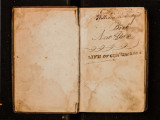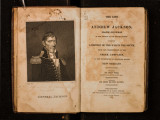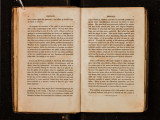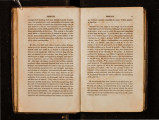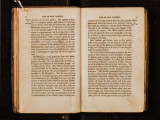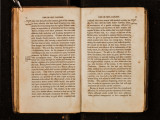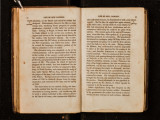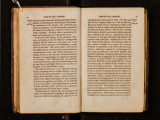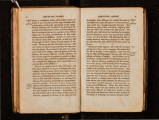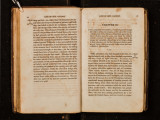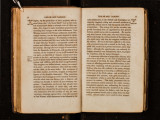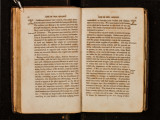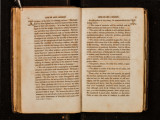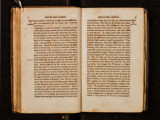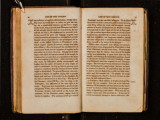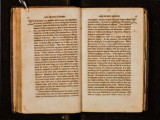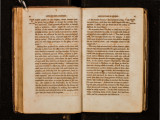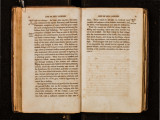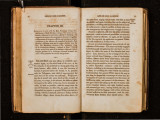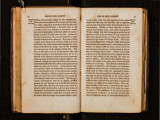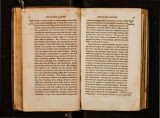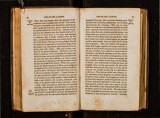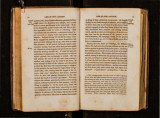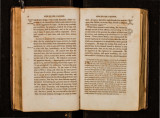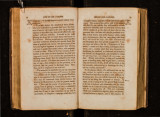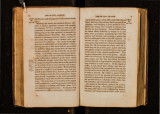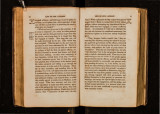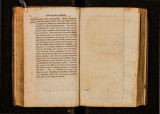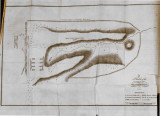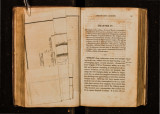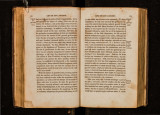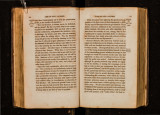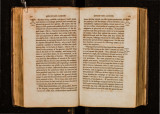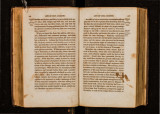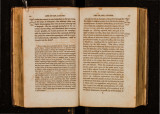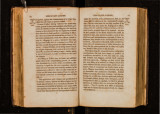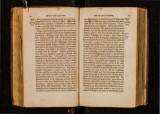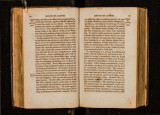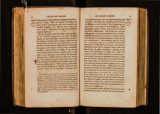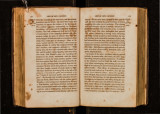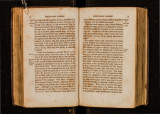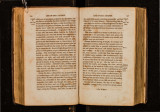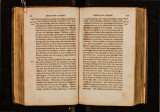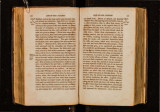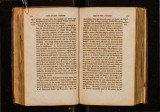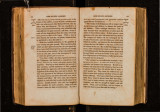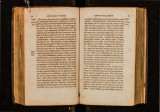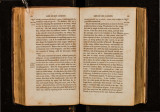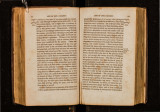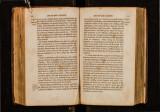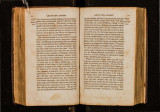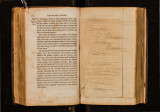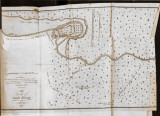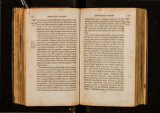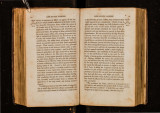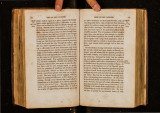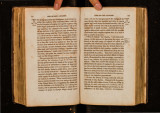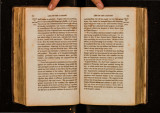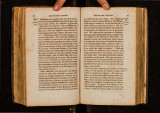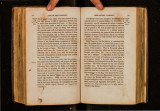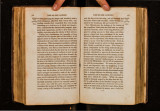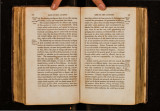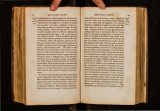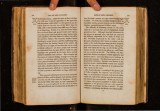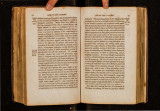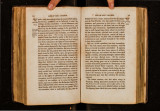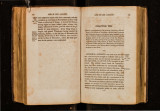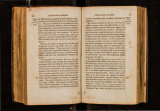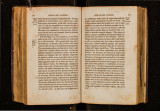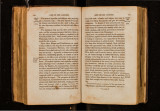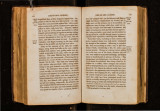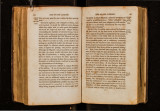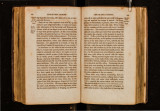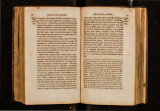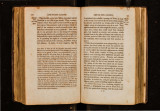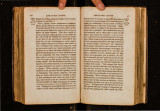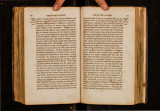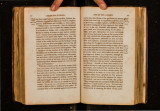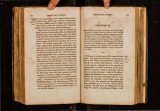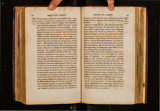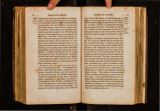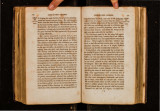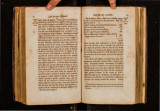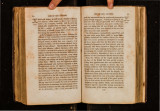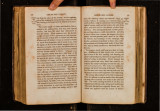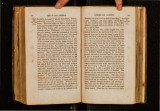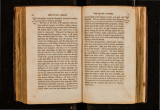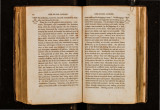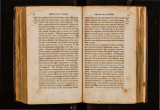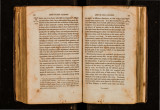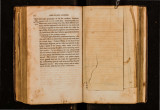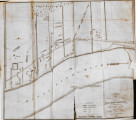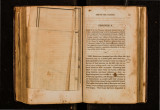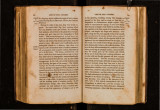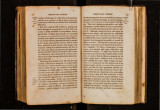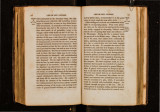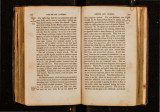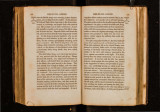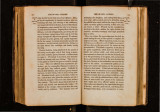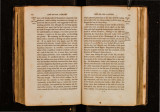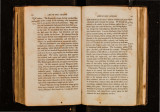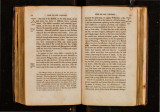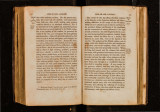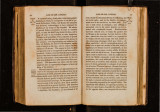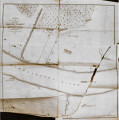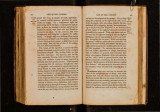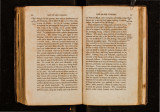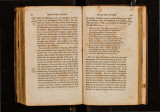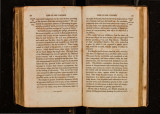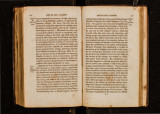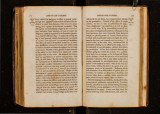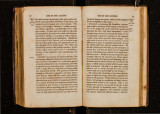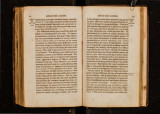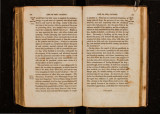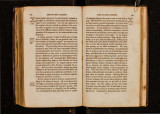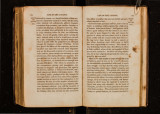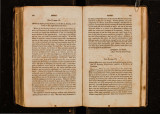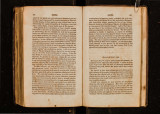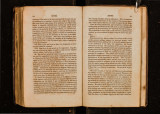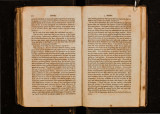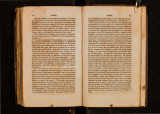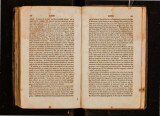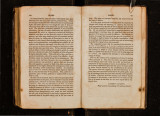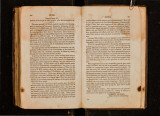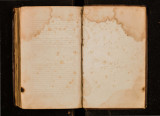| OCR Text |
Show 410 NOTES. allowance of the same, in the case mentionet.l in the said rule, ca.n Ue considered as a contempt; because the judge of this honourable court, by the 14th section of the ju~iciary act of the Unite<l States, is expressly inhibited from issuing any writ of habeas corpus, except in cases of prisoners "in custody, under, or by colour of the authority of the Unite~ States, or committed for trial before some court of the same; or who are necessary to be brought into court to testify; neither of which circumstances ap~ pear, either in the writ, the allow~nce of the same, ?r the a.ffi~a~ ,,it on which it was founded. Tlns court, then, havtng no JUnsdiction of the case, according to a decision of the Supreme Court of the United States, this respondent had a right to c~nsider the service as a trespass. Vll. That, by the said writ, no place was designated, at which the same should be returned. VIII. That the writ was served on the respondent, long after the return thereof, by reason whereof he could not have complied with the tenour, had he been so disposed. IX. The said writ of habeas corpus issued in an irregular man~ ncr, and the respondent was in no wise compelled by law to obey it; inasmuch as the name of the judge, allowing the same, was not signed on the writ with his proper hand writing: nor were the words, "according to the form of the statute," marked the~eonboth which are positively required, by the statutes regulatmgthe issuing of such /rocess; and without which they need not be obeyed. · Shoul it be objected, that the English statutes.are not binding here, it is ans\'fercU that the l:Jnited States a.re wttho~t a a statutory provision on the subject; and that the mtr~ducho~ of the writ of habeas corpus generally, must introUuce tt, as tt stood at the time of making the constitution. X. That if the allowance on the back of the affidavit, contrary to the express worUs of the statute, be deemed sufficient, yet. the respondent was not bound to pay any attention to the. wnt. of habeas corpus, because the same was not issued in confonmty Wlt.h the allowance gi,•en on the tifth day of March; this was for a wnt returnable on the next day, ami afterwarUs altered, so as to b~ar date on the sixth of the same month, returnable on the succecdmg morning, which would 1\ave been the 7th; whereas the writ a.ctu· ally issued, bore date the 6th, and was returnable the same u~y- NOTES. 411 thus varying materially from the allowance. This circumstance i~ an exc.ellent il~ustration of the wisdom of th~ statutory provi~ SJOn, wluch rcq~tres that th~ writ itself be signed by the judge. Under all wluch protestations and exceptions ;-without su-bmitting_ to the jurisdiction_ of the said court, or acknowledging the regulanty of the proceedmgs, but expressly denying the sameThis respondent, in order to give a fair anU true exposition of hi~ conduct, on every occasion in which it may be drawn into <]Uesti. on- Saith- That previously to, and soon after, his arrival in this section of the seventh military district, lJC received several letters and com.muni~ations, putting him on his guard against a portion of the _mh.abitant~ of the state, the legislature, and foreign Cimssanes 1~ _the ctty. T~t~ populat.ion of the country was represented as d~vtdcd, by pohbcal parttes and national prejudices; a great portwn of them attached to foreign powers, and disalfected to the government of their own country, and some, a!-1 totally unworthy .of confi~ence. The militia was described as resisting the authonty of thetr commanrler-in-chief, and encourarred in their disobedie?ce, by th~. legislature of the state. That legislature characterised as pohttcally rotten, and the whole state in such a situation as to make it necessary to look fo1· defence, principally from the regular troops, and the militia from other states. Among those representations, the most important, from the official station of the writer, were those of the governor. On the 8th of August, 1814, he says- " On a late occasion, I had the mortification to a~knowledne my inability to meet a requisition from general Flournoy; the corps of this city having, for the most part, resisted my orders. being enco!Jra~ed in their disobedience by the legislature of ~he state, tben in session; one branch of which, the senate, havmg declared the requisition illegal and oppressi,·e, and the house of representatives having rejected a proposition to approve the measure. How far I shall be supported in my late orders, remnins yet to be proved. I have reason to calculate upon the patriotism of the interior and western counties. I know also that there aTe many faithful citizens in New Odeans; but there are others, in whose attachment to the United States I ought not· to crmfide~ Upon the whole, sir, I .cannot disguise the fact, th.,_t if JJouisiana. |



